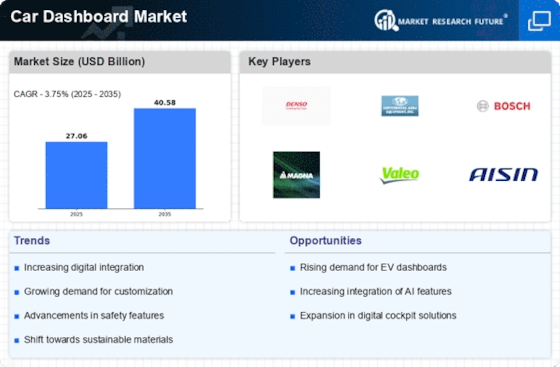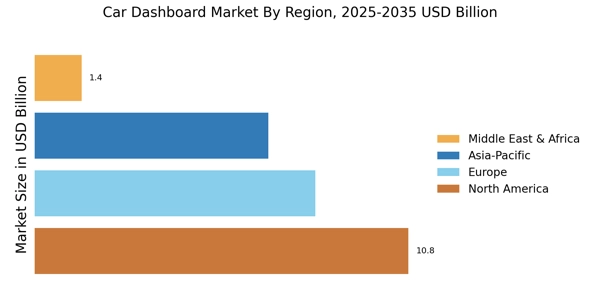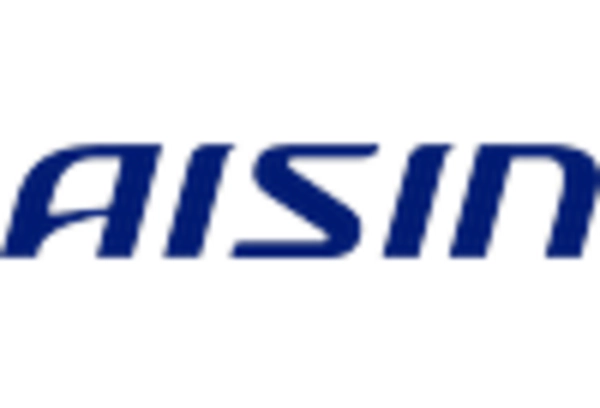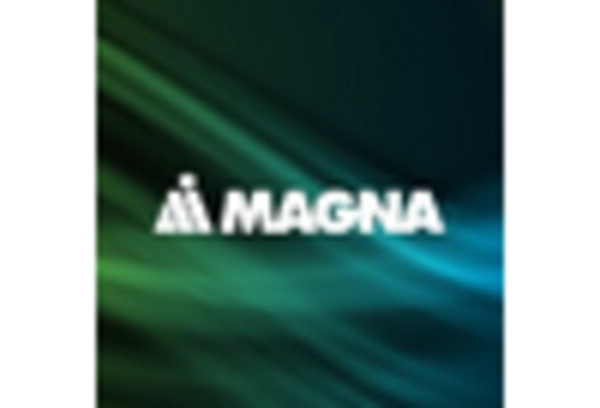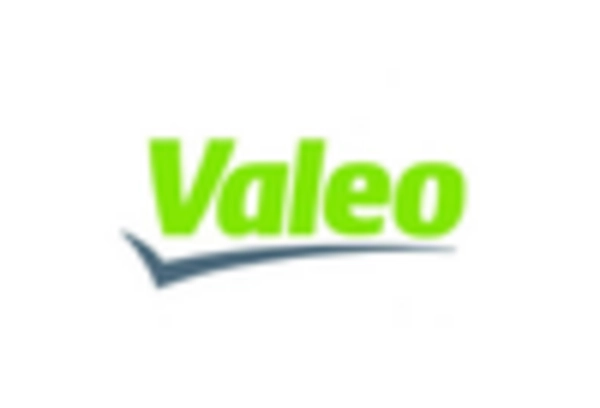Regulatory Compliance
The Car Dashboard Market is significantly influenced by regulatory compliance requirements aimed at enhancing vehicle safety and environmental standards. Governments worldwide are implementing stringent regulations that necessitate the inclusion of advanced safety features in vehicles, which directly impacts dashboard design. For instance, regulations mandating the installation of certain safety technologies, such as collision warning systems, are driving manufacturers to adapt their dashboard offerings accordingly. This compliance not only ensures safety but also enhances the overall appeal of vehicles in the market. As a result, the Car Dashboard Market is likely to witness a shift towards dashboards that integrate these safety features, aligning with regulatory expectations.
Electric Vehicle Adoption
The increasing adoption of electric vehicles (EVs) is reshaping the Car Dashboard Market. As more consumers opt for EVs, the demand for dashboards that cater specifically to electric vehicle functionalities is rising. This includes features such as battery status displays, energy consumption metrics, and charging station locators. Market analysis suggests that the EV market is expected to grow at a CAGR of over 20% in the next few years, which will likely drive innovation in dashboard technologies tailored for electric vehicles. Consequently, the Car Dashboard Market must adapt to these changes, ensuring that dashboards provide relevant information and enhance the overall driving experience for EV users.
Technological Advancements
The Car Dashboard Market is experiencing a surge in technological advancements, particularly with the integration of advanced driver-assistance systems (ADAS) and infotainment technologies. These innovations enhance user experience and safety, leading to increased demand for modern dashboards. According to recent data, the market for ADAS is projected to grow significantly, with a compound annual growth rate (CAGR) of over 10% in the coming years. This growth is likely to drive manufacturers to invest in more sophisticated dashboard technologies, thereby expanding the Car Dashboard Market. Furthermore, the incorporation of artificial intelligence and machine learning into dashboard functionalities is expected to revolutionize user interaction, making dashboards more intuitive and responsive to driver needs.
Rising Consumer Expectations
Consumer expectations are evolving rapidly, influencing the Car Dashboard Market. Today's drivers seek more than just basic functionalities; they desire dashboards that offer seamless connectivity, enhanced aesthetics, and personalized experiences. This shift in consumer behavior is prompting manufacturers to innovate continuously. Market data indicates that nearly 70% of consumers prioritize connectivity features in their vehicles, which directly impacts dashboard design and functionality. As a result, the Car Dashboard Market is likely to see an increase in the integration of smartphone connectivity, voice recognition, and customizable displays, catering to the growing demand for user-centric designs.
Increased Focus on User Experience
The Car Dashboard Market is increasingly prioritizing user experience as a key driver of innovation. Manufacturers are recognizing that a well-designed dashboard can significantly enhance the overall driving experience, leading to higher customer satisfaction and loyalty. This focus on user experience is prompting the integration of touchscreens, customizable interfaces, and intuitive controls into dashboard designs. Market Research Future indicates that user-friendly interfaces can improve driver engagement and reduce distractions, which is crucial for safety. As a result, the Car Dashboard Market is likely to see a trend towards more ergonomic and aesthetically pleasing dashboard designs that cater to the needs and preferences of modern drivers.


